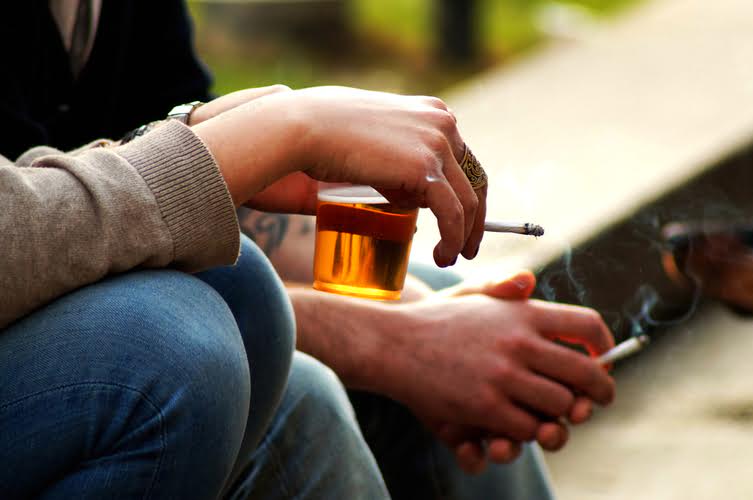It is generally advisable to avoid high-sugar and processed foods during alcohol withdrawal, as they can negatively impact mood and energy levels. Following these strategies may help, but are unlikely to stop the alcohol shakes fully. Visit an alcohol rehab center in Hanover, PA, for supervised medication therapy that will put you on the path to recovery. IV drips containing thiamine can prevent neurological conditions related to alcohol use. In addition, some IV drips help maintain blood pressure, reduce shaking, and restore hydration. Your treatment will vary depending on the substance use disorders and the amount of alcohol you regularly consume.
Medication for withdrawal tremors

The first step in treating alcohol shakes is safely managing the withdrawal process through medical detoxification. This phase involves supervised withdrawal in a controlled environment, such as a hospital or a specialized detox center. Medical professionals can administer medications to alleviate tremors and other withdrawal symptoms, reducing the risk of complications like seizures or delirium tremens.
Regular Physical Activity
Comparatively, while medications like benzodiazepines are often prescribed for alcohol withdrawal, stress management techniques offer a non-pharmacological alternative with fewer side effects. Unlike drugs, these practices empower individuals to self-regulate their nervous system, fostering long-term resilience. However, they require patience and commitment, as results are not instantaneous. Combining these techniques with professional medical supervision ensures a holistic approach to managing withdrawal symptoms. For those seeking immediate relief, deep breathing is the most accessible starting point, while meditation and mindfulness build a foundation for sustained recovery. Seeking medical attention and supervision is crucial, especially for individuals experiencing severe symptoms.

How long does it take to fully recover from alcohol withdrawal symptoms?
Medication-assisted treatment can help alleviate the shakes and other withdrawal symptoms, making the process more manageable. The root cause of alcohol withdrawal symptoms, including shakes, lies in alcohol’s depressant effect on the brain. Regular consumption of alcohol slows down brain activity, and over time, the brain adjusts to this depressant effect by becoming hyperactive.
Alcohol withdrawal shakes, also known as tremors, are a common and distressing symptom experienced by individuals reducing or stopping alcohol consumption after prolonged heavy use. These involuntary movements, often affecting the hands, arms, or other body parts, can range from mild to severe and are typically accompanied by anxiety, sweating, and insomnia. Additionally, addressing the underlying alcohol use disorder how to stop alcohol shakes through therapy, counseling, or support groups is essential for long-term success and relapse prevention.
- However, beta-blockers and anti-seizure medications provide valuable alternatives, particularly in patients who cannot tolerate or are at risk from benzodiazepines.
- A trained medical professional can best understand your specific medical situation and provide information that is specific to you personally.
- Detoxification, commonly known as detox, refers to the physiological process of eliminating harmful substances from the body.
- While alcoholism can negatively impact your mental health, it can also lead to severe physical reactions like withdrawal tremors, delirium tremens, and other serious complications.
- Even when the intake of alcohol ceases, the brain stays in this state of high alert.
Getting an adequate amount of quality sleep is crucial in managing alcohol shakes and supporting your recovery process. It’s recommended to aim for 7-9 hours of restful sleep each night to allow your body the necessary time to heal and recuperate. In addition to adequate hydration, maintaining a nutritious diet is essential for managing alcohol shakes and supporting overall health during the withdrawal process. A balanced diet rich in vitamins B and C can help alleviate the severity of alcohol shakes.
It also provides a chance to assess your individualized needs so that we can better tailor our program to fit you. Yes, there are several medications that can help alleviate alcohol withdrawal symptoms, including benzodiazepines and antipsychotics. However, these medications should only be taken under the supervision of a medical professional, as they can be addictive and have potentially dangerous side effects.
Professional Support During Withdrawal and Beyond
Severe symptoms may include delirium tremens, confusion, dehydration, breathing difficulties, hyperactivity, dizziness, and chest pain. It is important to seek medical attention if you experience severe symptoms, as they can be life-threatening. Alcohol withdrawal alcohol rehab shakes, also known as tremors, are one of the most common symptoms of alcohol withdrawal. They can range from mild to severe and can be debilitating for those experiencing them. Going to a healthcare professional is always recommended for managing alcohol withdrawal shakes.